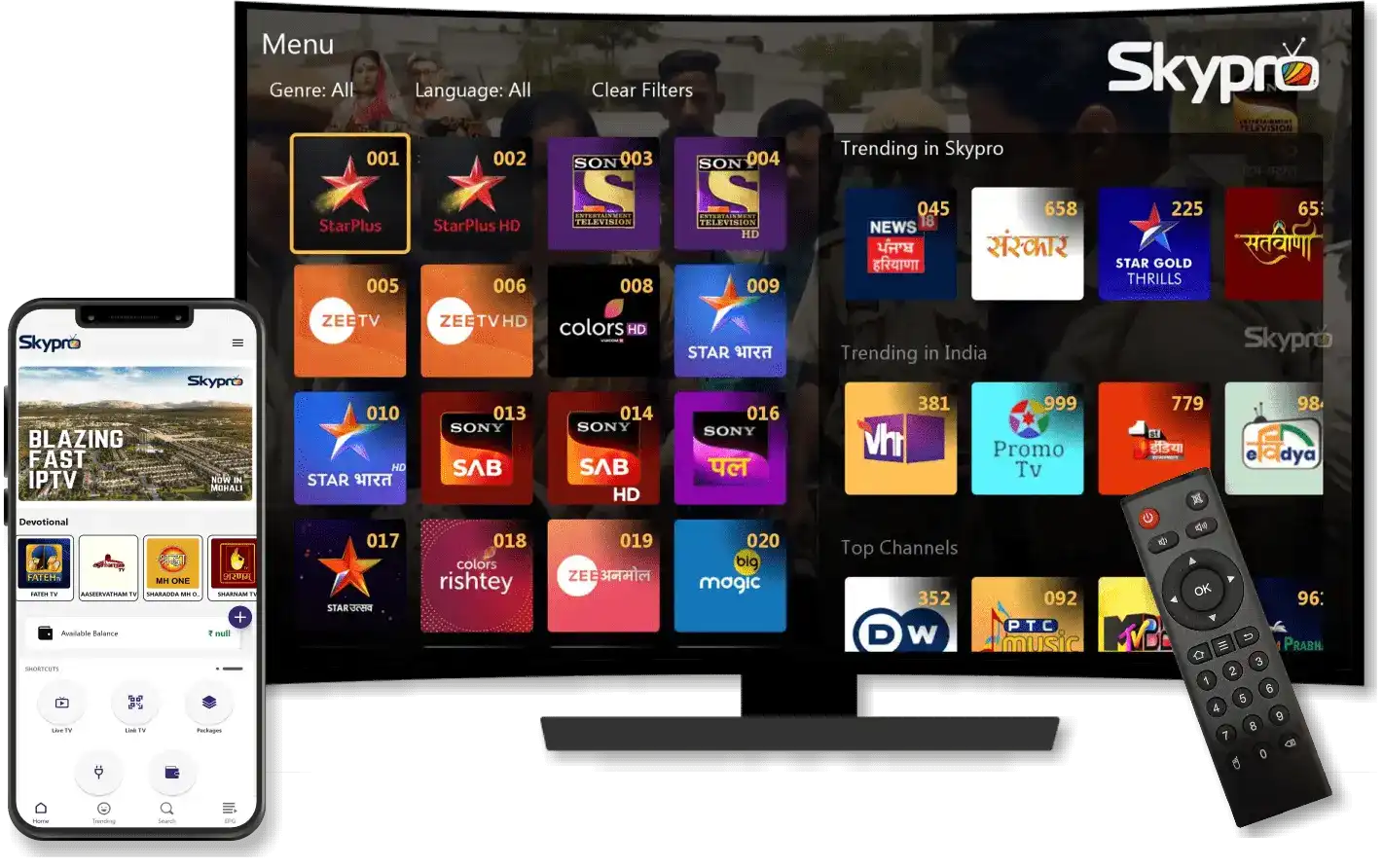How IPTV Works: The Future of Digital Entertainment Explained
The way we watch television has evolved significantly over time. Gone are the days when cable or satellite TV was the only source of entertainment. Today, Internet Protocol Television (IPTV) has emerged as a smarter and more flexible way to access TV channels and on-demand content.
With the rising number of IPTV subscribers in India, it's evident that more viewers are embracing this modern TV experience. But what exactly is IPTV, and how does it work? Bezowel IPTV serves as a gateway to this new era of television.
What is IPTV?
IPTV stands for Internet Protocol Television, meaning television services are delivered over the internet instead of traditional cable or satellite methods. With IPTV, users can watch live TV, movies, and on-demand shows using an internet connection, making it a more convenient and flexible alternative to conventional TV.
Popular IPTV services provide access to a variety of channels, HD-quality streaming, and features like pause, rewind, and record—capabilities that are not always available with cable TV. Whether on a smart TV, mobile device, or set-top box, IPTV offers a comprehensive entertainment solution.
How Does IPTV Work?
IPTV transmits video data over the internet using protocols similar to those that power the web. Here’s how it functions:
Content Transmission – TV channels, movies, and shows are converted into digital signals and transmitted over the internet.
IPTV Server Processing – The content is stored on IPTV servers, which manage and distribute video streams.
Streaming to Users – Users access content through IPTV apps, smart TVs, set-top boxes, or mobile devices.
On-Demand Access – Unlike traditional TV, IPTV allows users to request and watch content at any time rather than being restricted to scheduled broadcasts.
One of IPTV’s standout features is its reliance on the internet for content delivery. Therefore, the quality of the broadcast depends on the speed and reliability of the connection. A high-speed broadband connection—preferably 100 Mbps or more—ensures the best viewing experience.
Types of IPTV Services
IPTV is available in various formats, catering to different viewing preferences:
Live IPTV – Instead of broadcasting through cable or satellite, channels are streamed live over the internet, allowing users to watch news, sports, and other events in real time.
Video on Demand (VoD) – Users can select and watch movies or series whenever they want, similar to services like Netflix and Hotstar.
Time-Shifted TV – Allows users to pause, rewind, or replay programs so they can watch at their convenience.
Catch-Up TV – Some IPTV services offer access to previously aired programs for a limited time.
These features make IPTV a more flexible and user-friendly alternative to traditional broadcasting methods.
IPTV Growth in India: Why is IPTV Becoming Popular?
India is experiencing a significant rise in IPTV subscribers due to several factors:
Affordable High-Speed Internet – The expansion of fiber broadband and 5G has made fast and reliable internet more accessible.
Growing Demand for Online Entertainment – Viewers prefer on-demand content over rigid TV schedules.
Increasing Smart TV Adoption – More households are switching to smart TVs, which are compatible with IPTV services.
Cost-Effectiveness – IPTV services offer a vast range of channels and VoD at competitive prices, making them an attractive alternative to cable and DTH services.
With government-backed initiatives to expand internet access, IPTV adoption in India is expected to grow even further in the coming years.
Advantages of IPTV Over Traditional TV
Upgrading to IPTV offers several benefits:
More Channels & Content – Access to both global and regional channels, including exclusive sports, entertainment, and news networks.
No Need for Satellite Dishes or Cables – IPTV works over the internet, eliminating the need for dish installations and cable maintenance.
Multi-Device Access – Watch content on a smart TV, smartphone, tablet, or laptop anytime, anywhere.
Better Video Quality – Supports HD and 4K streaming for an enhanced viewing experience.
Interactive Features – Many IPTV services offer personalized recommendations, parental controls, and cloud DVR options.
With these advantages, IPTV is shaping the future of home entertainment.
Is IPTV Legal in India?
Yes, IPTV is legal in India as long as it operates under government-issued licenses. Licensed IPTV providers comply with regulations to ensure a legitimate and secure viewing experience.
The Future of IPTV in India
The rapid growth of IPTV subscribers in India marks the beginning of a new era in television. With advancements in high-speed internet, smart devices, and increased demand for on-demand content, IPTV is poised to become the ultimate digital entertainment solution. As cloud-based and internet-powered innovations continue to reshape global entertainment, IPTV stands as a revolutionary force in the television industry. Skypro IPTV is leading this transformation, offering 550+ HD/SD channels, seamless streaming, and a hassle-free experience. If you’re looking for a smarter way to watch TV, now is the perfect time to explore Skypro IPTV!
Download App for Free and Elevate Your Viewing Experience!
Skypro Selfcare App is available on Android Devices. Download for a seamless and optimized experience!
